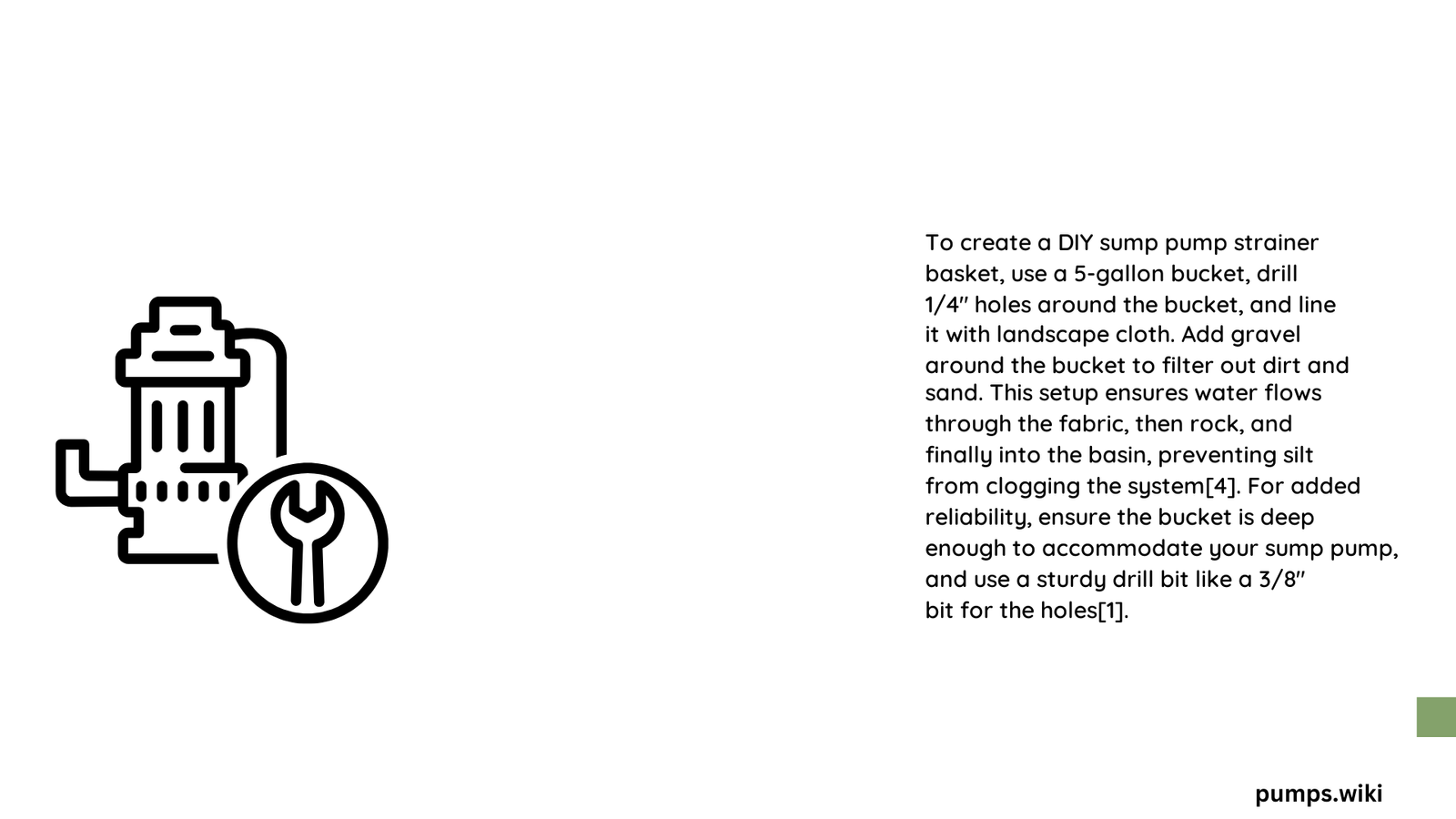A DIY sump pump strainer basket is an essential solution for homeowners seeking to protect their basement from water damage. By creating a custom filtration system using readily available materials like a 5-gallon bucket, landscaping fabric, and basic tools, you can effectively prevent debris from clogging your sump pump while ensuring optimal water drainage and system performance.
What Materials Do You Need for a DIY Sump Pump Strainer Basket?
Essential Components
- 5-gallon plastic bucket
- Landscaping barrier fabric
- Drill with 3/8-inch drill bit
- Gravel or small rocks
- Measuring tape
- Work gloves
| Material | Purpose | Recommended Type |
|---|---|---|
| Bucket | Primary container | Durable plastic, 5-gallon |
| Filter Fabric | Debris prevention | Landscaping barrier cloth |
| Drill Bit | Creating perforations | 3/8-inch diameter |
How to Prepare Your Bucket for Strainer Basket Construction?

Perforation Process
- Clean the bucket thoroughly
- Mark evenly spaced drilling points
- Use a 3/8-inch drill bit to create holes
- Ensure holes are distributed vertically and horizontally
- Leave bottom of bucket solid for stability
Filtering Layer Application
- Wrap landscaping fabric around entire bucket exterior
- Secure fabric with zip ties or strong adhesive
- Trim excess fabric for neat appearance
What Are the Key Installation Steps?
Sump Pit Preparation
- Dig pit slightly larger than bucket dimensions
- Ensure pit depth accommodates entire strainer basket
- Create stable, level foundation
Basket Placement Techniques
- Lower bucket carefully into prepared pit
- Fill surrounding area with gravel
- Ensure bucket remains level and centered
- Position sump pump inside basket
How Do You Maintain Your DIY Sump Pump Strainer Basket?
Maintenance Checklist
- Inspect basket quarterly
- Remove and clean accumulated debris
- Check fabric for tears or degradation
- Verify hole perforations remain clear
- Assess gravel stability around basket
Potential Issues to Monitor
- Fabric deterioration
- Hole blockages
- Structural integrity of bucket
- Water flow efficiency
What Performance Expectations Should You Have?
Filtration Capabilities
- Captures sediment and small particles
- Prevents large debris from entering pump
- Improves overall pump longevity
- Reduces maintenance frequency
Typical Lifespan
- With proper maintenance: 2-3 years
- Factors affecting durability:
- Water quality
- Debris volume
- Installation precision
Pro Tips for Optimal Performance
Advanced Recommendations
- Use multiple fabric layers for enhanced filtration
- Consider periodic professional inspection
- Monitor water table levels
- Upgrade materials as needed
Cost-Effective Strategies
- Source materials from local hardware stores
- Perform regular self-maintenance
- Replace components proactively
Troubleshooting Common Challenges
Quick Fixes
- If holes become clogged: Clean or re-drill
- Fabric wearing out: Replace immediately
- Unstable placement: Add more gravel support
Safety Considerations
Important Precautions
- Wear protective gear during construction
- Ensure electrical connections are secure
- Follow local building codes
- Consider professional consultation if uncertain
References:
1. Sump Pump Installation Guide
2. Basement Waterproofing Techniques
3. DIY Home Maintenance Resources
